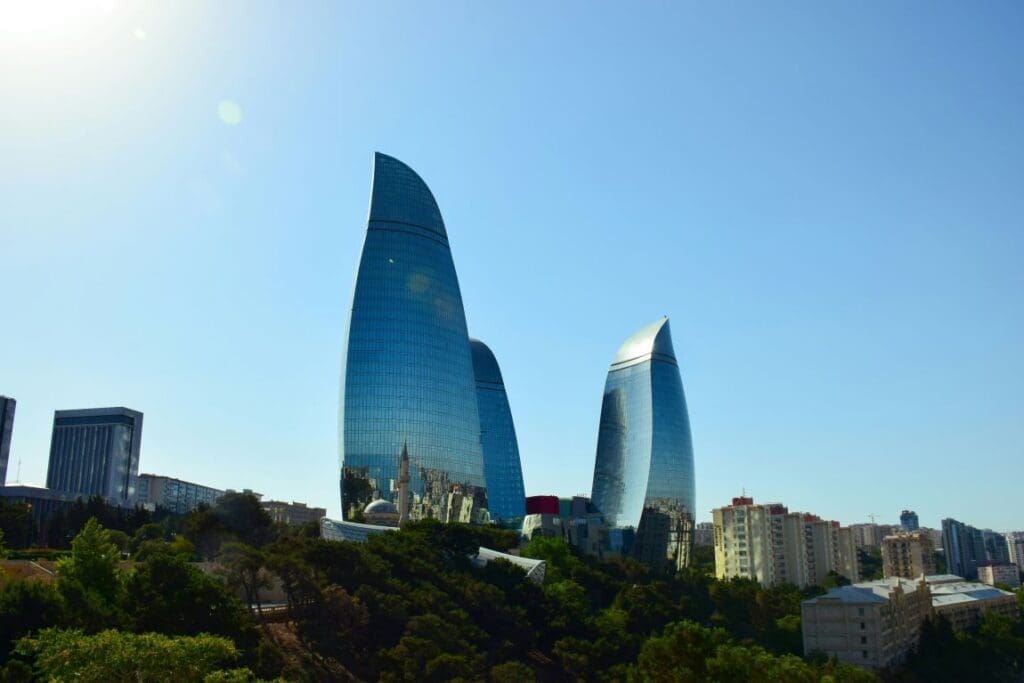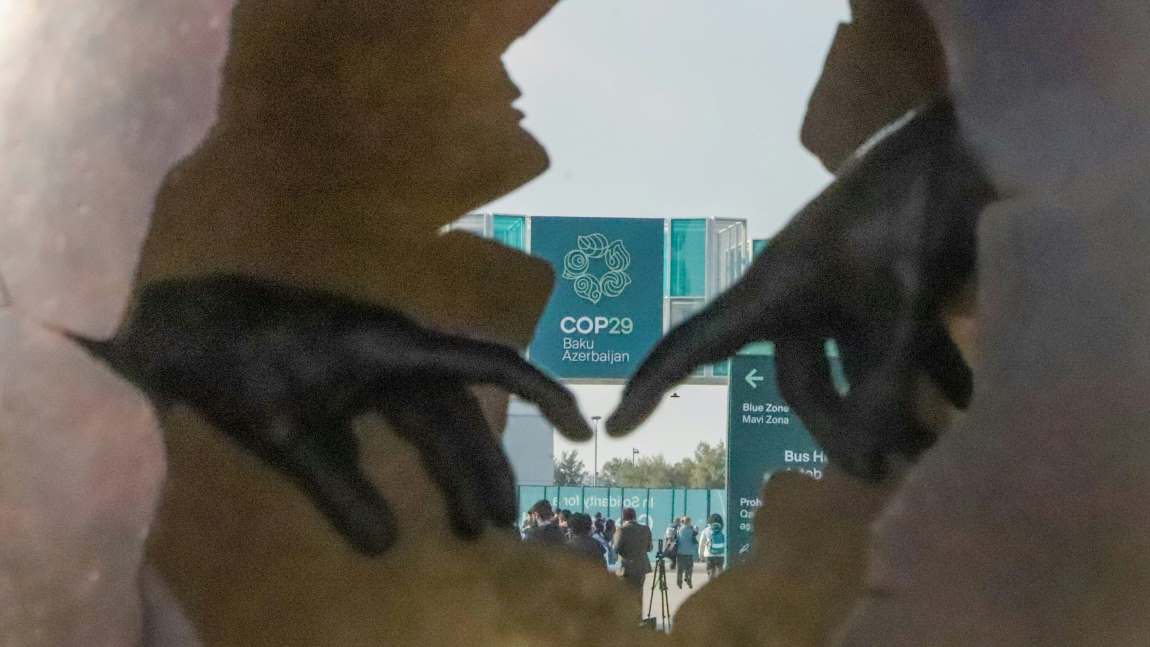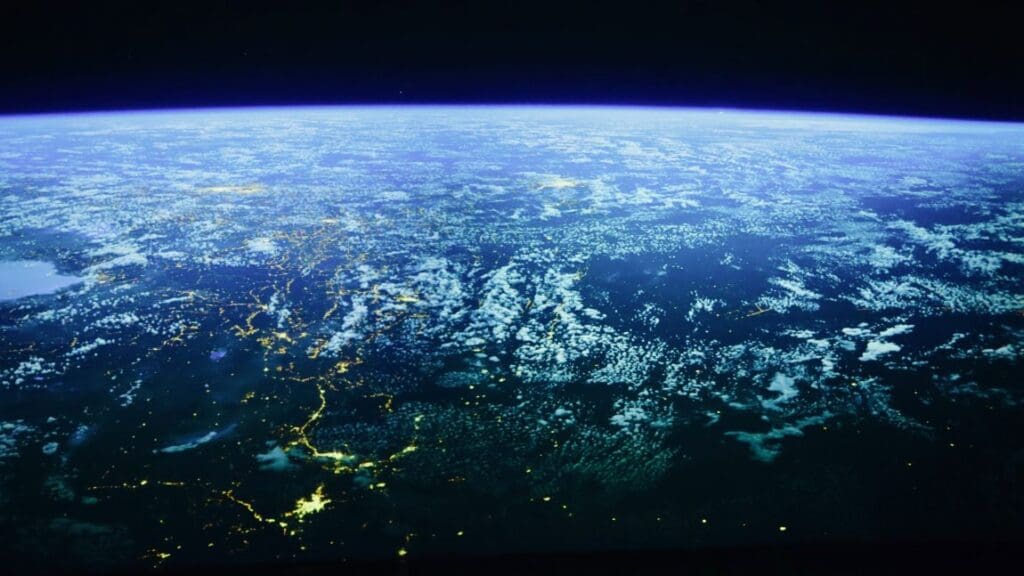Baku, Azerbaijan | AFP
The world approved a bitterly negotiated climate deal Sunday but poorer nations most at the mercy of worsening disasters dismissed a $300 billion a year pledge from wealthy historic polluters as insultingly low.
After two exhausting weeks of chaotic bargaining and sleepless nights, nearly 200 nations pushed through the contentious finance pact in the early hours in a sports stadium in Azerbaijan.
But the applause had barely subsided when India delivered a full-throated rejection of the “abysmally poor” deal, kicking off a firestorm of criticism from across the developing world.
“It’s a paltry sum,” thundered India’s delegate Chandni Raina.
“This document is little more than an optical illusion. This, in our opinion, will not address the enormity of the challenge we all face.”
Sierra Leone’s climate minister Jiwoh Abdulai said it showed a “lack of goodwill” from rich countries to stand by the world’s poorest as they confront rising seas and harsher droughts.
Nigeria’s envoy Nkiruka Maduekwe put it even more bluntly: “This is an insult.”
Some countries had accused Azerbaijan, an oil and gas exporter, of lacking the will to meet the moment in a year defined by costly climate disasters and on track to become the hottest on record.
But at protests throughout COP29, developed nations — major economies like the European Union, the United States and Japan — were accused of negotiating in bad faith, making a fair deal impossible.
Developing nations arrived in the Caspian Sea city of Baku hoping to secure a massive financial boost from rich countries many times above their existing pledge of $100 billion a year.
Tina Stege, climate envoy for the Marshall Islands, said she would return home with only a “small portion” of what she fought for, but not empty-handed.
“It isn’t nearly enough, but it’s a start,” said Stege, whose atoll nation homeland faces an existential threat from creeping sea levels.

No time to celebrate
Nations had struggled at COP29 to reconcile long-standing divisions over how much developed nations most accountable for historic greenhouse gas pollution should provide to poorer countries least responsible but most impacted by Earth’s rapid warming.
The meeting also saw stalling on the promise to “transition away” from fossil fuels, the main driver of global heating.
That pledge, a key achievement of COP28 in Dubai, was scrubbed from the final Baku deal.
The Least Developed Countries bloc of 45 nations slammed the COP29 outcome as a “travesty,” adding that it failed to make progress on curbing warming, or deliver enough cash to protect the most vulnerable.
“This is not just a failure; it is a betrayal,” the group said in a statement.
Nations have agreed to try to limit temperature rise to 1.5 degrees Celsius above preindustrial times. Currently the world is on track for devastating warming of between 2.6 °C and 3.1 °C this century, according to the UN.
UN Secretary-General Antonio Guterres said he had “hoped for a more ambitious outcome” and appealed to governments to see it as a starting point.
Developed countries only put the $300 billion figure on the table on Saturday after COP29 went into extra time and diplomats worked through the night to improve an earlier spurned offer.
Bleary-eyed diplomats, huddled anxiously in groups, were still polishing the final phrasing on the plenary floor in the dying hours before the deal passed.
UK Energy Secretary Ed Miliband hailed “a critical eleventh-hour deal at the eleventh hour for the climate.”
At points, the talks appeared on the brink of collapse.
Delegates stormed out of meetings, fired shots across the bow, and threatened to walk away from the negotiating table should rich nations not cough up more cash.
In the end — despite repeating that “no deal is better than a bad deal” — developing nations did not stand in the way of an agreement.
‘Historic’
US President Joe Biden cast the agreement reached in Baku as a “historic outcome.”
EU climate envoy Wopke Hoekstra said it would be remembered as “the start of a new era for climate finance.”
The agreement commits developed nations to pay at least $300 billion a year by 2035 to help developing countries cut emissions and prepare for worsening disasters.
It falls short of the $390 billion that economists commissioned by the United Nations had deemed a fair share contribution by developed nations.
The US and EU pushed to have newly wealthy emerging economies like China — the world’s largest emitter — chip in.
Wealthy nations said it was politically unrealistic to expect more in direct government funding at a time of geopolitical uncertainty and economic belt-tightening.
Donald Trump, a sceptic of both climate change and foreign assistance, was elected just days before COP29 began and his victory cast a pall over the UN talks.
Other countries, particularly in the EU — the largest contributor of climate finance — saw right-wing backlashes against the green agenda, not fertile conditions for raising big sums of public money.
The final deal “encourages” developing countries to make contributions on a voluntary basis, reflecting no change for China, which already provides climate finance on its own terms.
The deal also posits a larger overall target of $1.3 trillion per year to cope with rising temperatures and disasters, but most would come from private sources.
bur-np/klm/fg
© Agence France-Presse
Article Source:
Press Release/Material by Nick Perry, Laurent Thomet and Shaun Tandon | AFP
Featured image credit: Matthew TenBruggencate | Unsplash




